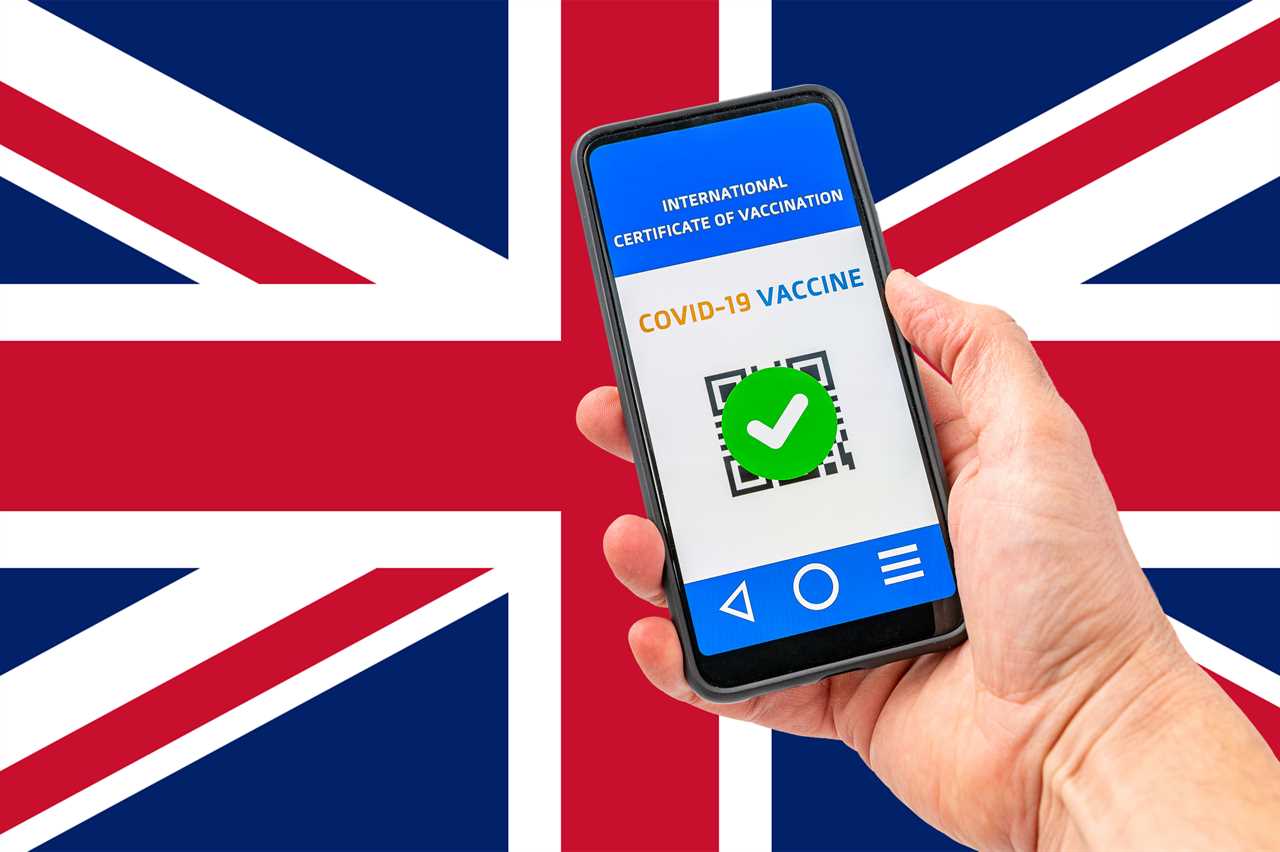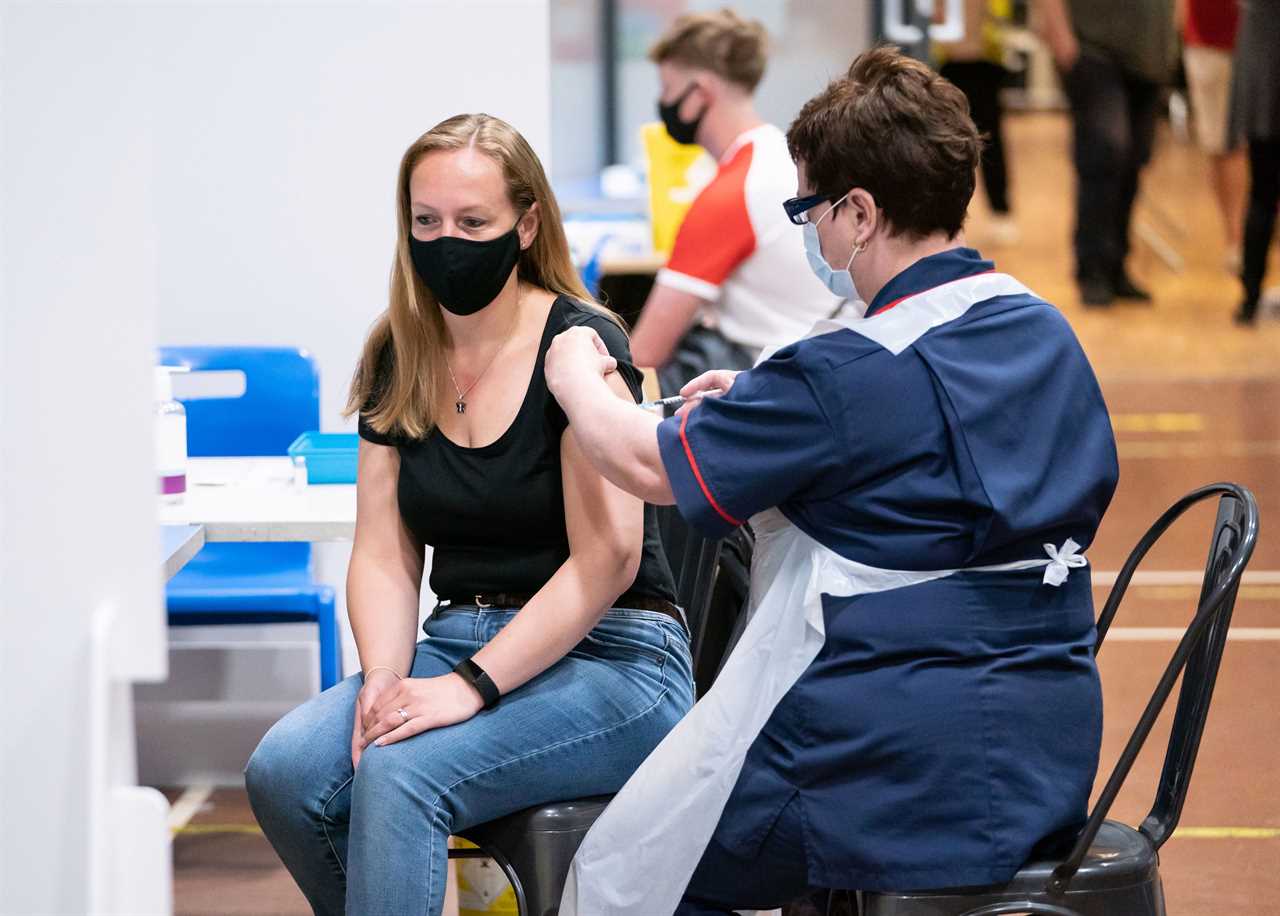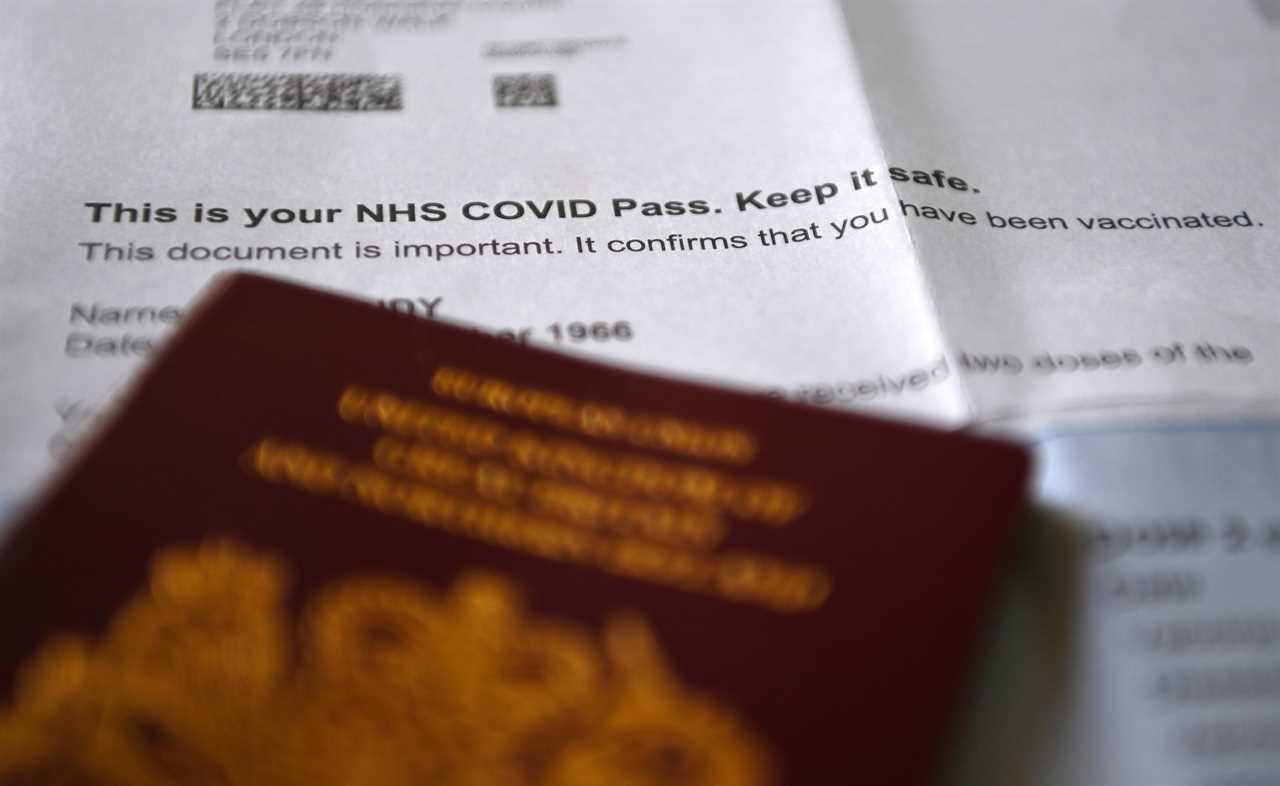AS Brits get back to normal following the lifting of Covid restrictions, there are still some things we will need to do to continue to do the things we love.
Covid certification is expected to become the new norm for everything from holidays, nightclubs and big events.

Some countries require Covid-status certificates to get in, including proof of vaccination
The Government have set up a scheme to show your proof of vaccination, or proof of a negative test.
But different rules apply depending on what you are using it for.
Be wary that getting yout “pass” can take a few days, possibly longer, because sometimes there may be extra checks. So it is vital to leave plenty of time.
When will you need one?
At the moment, Covid status certificates are not a legal requirement in the UK to get into places, such as pubs, theatres, cinemas or shops.
However, nightclubs have been encouraged to use them by the Government – and it may be mandatory in the near future.
This might mean your favourite venue currently won’t let you in unless you have a pass.
Some clubs have already started to ask their guests to show proof of their Covid status.
Meanwhile you may need Covid-status certification to enter another country, including green-list nations, with differing rules everywhere.
Check the entry requirements for your destination country on the GOV.UK foreign travel advice pages as well as the country’s own website.
There may also be other requirements, such as quarantine once you get there.
Some nations will not accept the NHS COVID Pass as proof of full vaccination. There is currently not a universal “Covid passport”.
Check if the country you are travelling to accepts QR code as proof of vaccination, and if not, what you need to enter.
For travel abroad
Many Brits are braving an international holiday this year. If you are one of them, you will need to show your Covid status.
This tells others – such as officials in other countries – you are unlikely to be carrying the virus and pose a threat to others.
You can do this by getting an NHS COVID Pass.
This can tell others both if you have recently had a negative test result, or if you have been vaccinated.

You need to have had your second vaccine dose at least two weeks ago to get an NHS COVID Pass
You can get an NHS COVID Pass for travel abroad if:
- You are over 16
- You had one of two doses of a vaccine, 24 hours prior
- You have had a positive Covid PCR test within the past six months, proving you have antibodies
Children, who can’t get a NHS COVID Pass, may not need to show their Covid status when going abroad. But it’s best to check the requirements of your destination.
For domestic events
The NHS COVID Pass is also used for domestic events in the UK, but with slightly different requirements.
You can get an NHS COVID Pass for domestic use if:
- You are over 18
- It’s been two weeks since you had your second vaccine dose
- You have had a negative PCR or lateral flow test in the past 48 hours (proof needed)
- You have had a positive Covid PCR test within the past six months (proof needed)
How do you get a Covid-status certificate?
You can get your NHS COVID Pass in a few ways.
Digital
You can access your NHS COVID Pass through the free NHS App on either your phone, tablet, or on the NHS website.
Download the app by typing “NHS” into the search bar of your iOS App store or Android Play Store and clicking install.
The one to download is called “NHS”. Be wary there are other NHS apps that are for other services.
Details such as your email address and postcode will be needed to get your certificate.
You have to be registered with a GP in England to use the NHS App. However, you don’t need to contact your GP unless your certification is not showing.
If this happens, you’ll need to ask your GP for your full detailed medical record.
Proof of your Covid status will be shown within the NHS App with a barcode.
The certificate will have a barcode that can also be stored in your Google wallet.
The barcode will only be valid for 30 days. After that, you need to refresh the app.
If you have had two vaccine doses, you’ll see two barcodes. If you’ve had one, you’ll have one barcode.
Paper – print yourself at home
If you don’t want your certificate in a digital format, you can also have it on paper.
To print it yourself, you’ll need to register for an NHS login if you do not have one already, which may take some time to process.
Once you have a login, you can view your Covid status and then download and print it as a PDF document.
The document will contain a barcode. If you download your COVID Pass as a PDF, always check the expiry date before using it because it only lasts for 30 days.
Access the NHS COVID Pass via the NHS website
NHS COVID Pass letter
It’s called the NHS COVID Pass letter.
This is only available for people who have had both doses of their vaccine – so for people travelling abroad with two doses, or for domestic use.
Therefore, over 16s can also request a letter.
You also need to wait five working days after your second dose to apply for the letter.
And it can take five days to arrive.
Request your letter using the NHS website, or by calling 119.
It may take a few days for the certificate to reach you this way.

You can also apply to have a paper version of your NHS Covid Pass
How to get proof of a negative test
Some activities need proof of a negative test via PCR, while others just need lateral flow.
Everyone has access to rapid lateral flow Covid tests and they are easy to do from the comfort of your own home, giving a result between 15 and 30 minutes.
Head online to this website – where you can request a pack of tests to use at home.
Use this service to report your result to the NHS after using a rapid lateral flow test kit to check if you’re infectious with coronavirus (COVID-19).
Report the result every time you use a rapid lateral flow test kit and as soon as possible after you get the result.
You cannot report a result after more than 24 hours. You can only report one result at a time.
You need to have the barcode on the test strip or the ID number printed under it and a mobile phone number to get a text confirming the result.
You will need a negative test to go on holiday. Even if the country you are headed to does not require it, entry back into the UK does.
The Polymerase Chain Reaction tests (PCR tests) are seen as the “gold standard” when it comes to testing and are different to the lateral flow tests available for free from the NHS.
You will have to pay for the PCR tests if you want to use them for travel with some places charging more than £100.
You should not use the free NHS testing service to test yourself before a holiday as these tests are for people with Covid symptoms. The government has asked that you instead arrange a private test.
Read more here about where to get a PCR test before travel, and before returning to the UK.
Usually a printed document or email/text message with your result is sufficient to prove you are negative at the airport.









